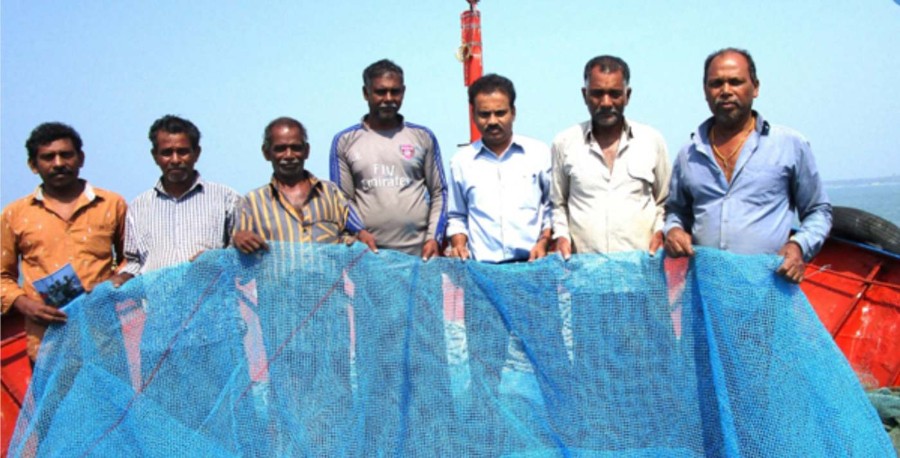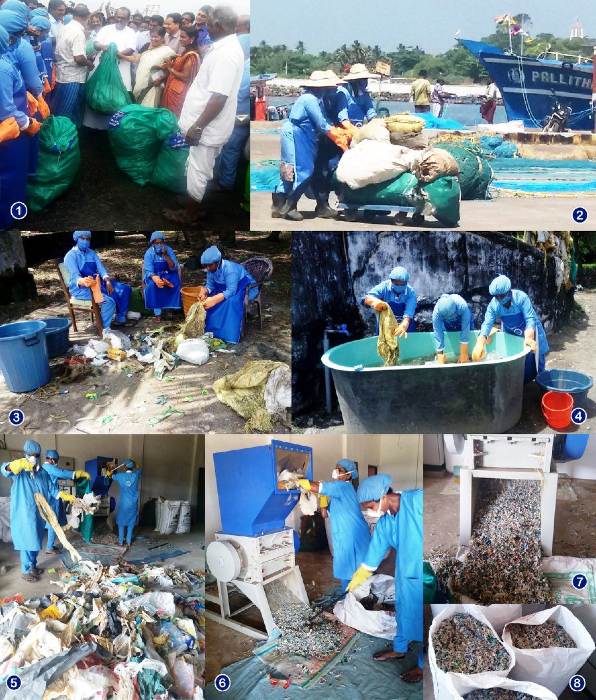Smile
Indian fishers catch plastic to save the seas and rebuild roads

- The government of India has passed a law that encourages fishing communities to catch waste from the ocean.
- These wastes, particularly plastics, are shredded and brought to roadbuilders.
- The shredded plastics are then mixed with asphalt to make roads.
“Gold in garbage” — it’s an old adage that still rings true today, thanks to the fisherfolk from Kerala, South India, and their “clean up the ocean” drive.
For many years, plastic waste has been one of the major problems that cause ocean pollution. Although there are existing efforts to fight this global crisis, local communities continue to give their share in saving this most valuable resource.

Take the case of the local fishers in Kerala, who are taking the initiative to save their waters and create a lasting impact in their ecosystems by doing what they do best: fish. But this time, with an added value — fishing waste products thrown into the ocean.
This effort is in support of their government’s clean seas law that’s turning plastic into roads.
Known as the “Suchitwa Sagaram,” the Indian government launched its program — with partners from its harbor authority — to provide nylon bags to fishing boats with the intent to catch plastics and other wastes.

These wastes are then shredded and sold to roadbuilders.
The shredded plastics are mixed with asphalt to make roads, replacing a ton of emission-heavy asphalt and reducing road costs by about 9%. The plastic providing heat resistance to roads is an added benefit.
To date, the project accumulated 176,000 pounds of plastic, which in turn created 84 miles of road.
“Previously, we didn’t care much about the plastic we collected in our nets,” Peter Mathias, president of the All Kerala Fishing Boat Operators’ Association, said. “But not anymore—we’re now protecting the ocean to save our livelihoods. Had we continued to be reckless, there wouldn’t have been any more fish for us to catch.”
The project is continuously scaling up, attracting more fishers and divers to be involved, causing a positive change in the livelihoods of many coastal families. But the best impact this caused would be a major shift in the fishing communities’ perspective in saving the environment.
Source: Good News Network

-

 Cute Animals5 months ago
Cute Animals5 months agoPuppy Love Patrol: Service Dog Swoons Over K9 Officer Neighbor
-

 Cute Animals9 months ago
Cute Animals9 months agoHugs, Hooves, and Happiness: Newborn Donkey Steals Hearts by Demanding Affection [Video]
-

 Cute Animals8 months ago
Cute Animals8 months agoWATCH: A German Shepherd’s Surprising Parenting Instinct for Lost Ducklings!
-

 Cute Animals11 months ago
Cute Animals11 months agoPetty Pup Pulls Off Hilarious Bone Heist [Video]
-

 Heroes7 months ago
Heroes7 months agoA Lost Dog’s Bark Leads to a Lifesaving Discovery
-

 Cute Animals8 months ago
Cute Animals8 months agoAdorable Puppy Steals Hearts After a Tiring Swim [Video]
-

 Cute Animals9 months ago
Cute Animals9 months ago“Pure Love”: Adopted Rescue Dog Can’t Hide How Grateful He Is [Video]
-

 Cute Animals9 months ago
Cute Animals9 months agoTiny but Mighty: Cat with Dwarfism Becomes Internet Star as Owners Adapt Backyard for Her Comfort